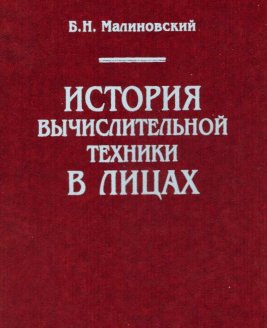David M. Berry: The Philosophy of Software: Code and Mediation in the Digital Age (2011)
Filed under book | Tags: · code, computation, computing, philosophy, software, software studies

The Philosophy of Software is a critical introduction to the subject of code and software, and develops an understanding of its social and philosophical implications in the digital age. The book has been written specifically for people interested in the subject from a non-technical background and provides a lively and interesting analysis of these new media forms. Software is a tangle, a knot, which ties together the physical and the ephemeral, the material and the ethereal, into a complete system that can be controlled and directed. However, software exceeds our ability to place limits on its entanglement, for it has in the past decade entered the everyday home through electronic augmentation that has replaced the mechanical world of the twentieth century. From washing machines to central heating systems, children’s toys to television and video; the old electro-magnetic and servo-mechanical world is being revolutionised by the silent logic of virtual devices. It is time, therefore, to examine our virtual situation.
Publisher Palgrave Macmillan Limited, 2011
ISBN 0230244181, 9780230244184
200 pages
PDF (updated on 2012-8-3)
Comment (0)Boris N. Malinovsky: Pioneers of Soviet Computing (1995–) [RU, EN]
Filed under book | Tags: · computing, cybernetics, history of computing, history of science, history of technology, soviet union, technology

Boris N. Malinovsky’s Pioneers of Soviet Computing is the English language version of his earlier Russian language The History of Computing in Personalities (in Russian: История Вычислительной Техники в Лицах). Partly technical history and partly a memoir, it is the only existing first person account of the birth of modern computing in Russia, Ukraine, and Belarus. It chronicles the life and work of renowned Soviet computer scientists S.A. Lebedev, V.M. Glushkov, N.P. Brusentsov, I.S. Brook, and many others. It describes numerous indigenous and original Soviet computer hardware projects from the end of the Second World War through the decades that followed, interlaced with commentary on the Soviet political and social systems that constrained rapid and free technological advancement. In addition, this work reviews the various Russian and Ukrainian computing schools ranging from the highly philosophical cybernetics and artificial intelligence to the applied defense computing institutions supporting the military and weapons enterprises. The epic effort to mass produce the Unified System (ES) series of computers – based on the IBM 360 design – is described in depth, along with the political and bureaucratic intrigue and personal and technological struggles that accompanied.
Subjects: Soviet Union, USSR, Electronic Computing, Science, Defense, MESM, BESM, ES, Elbrus, Setun, Cybernetics, Control Computers, Ternary.
Publisher KIT, Kiev, 1995
ISBN 5770761318
384 pages
English edition
Edited by Anne Fitzpatrick
Translated by Emmanuel Aronie
Editorial consultant: Kate Maldonado
First published in 2006
Published electronically by SIGCIS, 2010
Creative Commons license BY-ND 3.0
Authors (via Internet Archive)
Publisher (EN)
via Aymeric Mansoux
Istroiya vychislitelnoy techniki v litsach (Russian, 1995, HTML, added on 2015-1-13)
, Pioneers of Soviet Computing (English, 2nd ed., 2006/2010)
Speculations. Journal of Speculative Realism, No. 2 (2011)
Filed under journal | Tags: · actor-network theory, networks, ontology, philosophy, speculative realism, theory

Speculations is a journal dedicated to research into speculative realism and post-continental philosophy. Our aim is to facilitate discussion about ongoing developments within these emerging movements and related disciplines. The journal is open access and peer-reviewed.
Edited by Michael Austin, Paul J. Ennis, Fabio Gironi, Thomas Gokey
Published in May 2011
Creative Commons BY-NC-ND license
ISBN 978-1-257-65407-9
PDF (updated on 2014-9-20)
Comment (0)
